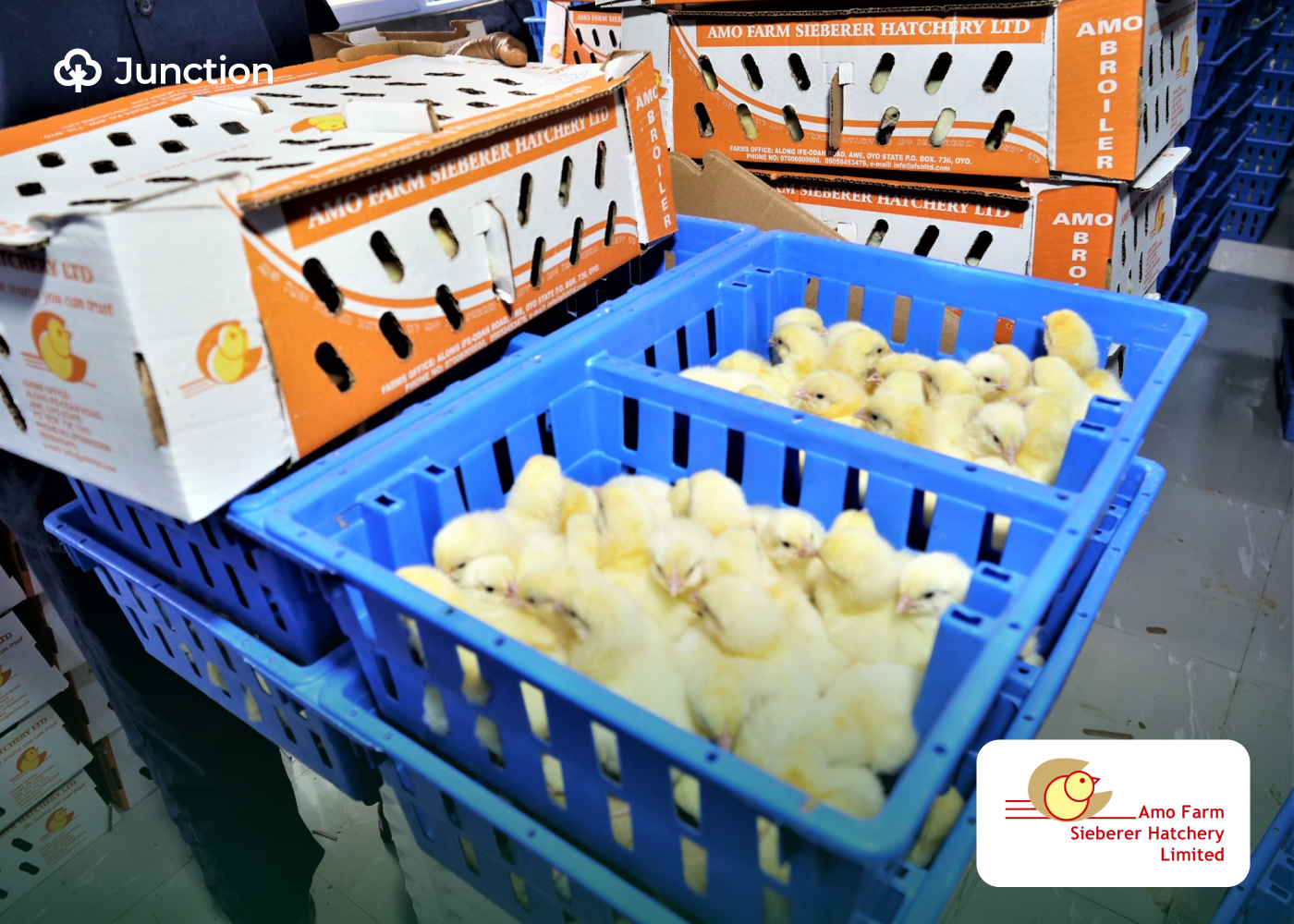Questions answered in this article:
– How does the mismatch between population growth rate and local food production affect the economy?
– What percentage of agricultural tetiary institution students in Nigeria are actually interested in practicing agriculture?
– How can Nigeria’s agricultural tertiary institutions improve its food security and put more youths in line to earn a living?
The whole of 2024 has got most of us, if not all of us in Nigeria, on the edge, with food-driven inflation rising to 33.69% in April along with many other stressors. Like we say in Nigeria, we have to wear sense and use what we have right before our eyes to get what will preserve us.
And it may become worse, because at the current population growth rate of 2.4%, food requirements will continue to rise, and if local production does not match it, food importation bill may rise to over $5 Billion by 2030, as it continues substituting for local production.
It doesn’t end there; during the same period, over 25 million educated Nigerian youths may not find jobs. The present and quick win jobs and businesses of Nigeria’s young people are in agriculture and home-grown food production that will bring home most of its food consumption that is imported. However, this will not be achieved without improving productivity by engaging young people right from when they are impressionable, that is, when they are in school.
Therefore, I am advocating a command and physical expression of integrated farming and agricultural processing systems. These will be connected, thriving and integrate young people in agricultural faculties of tertiary institutions across Nigeria, and its host communities into its circular economic activities. It is to be established in the 144 tertiary institutions that offer agriculture majors across Nigeria.
In the next section, I will disprove what is a common misconception about Nigerian youths and their interest in agriculture. This will provide an argument for the viability of what I am advocating for in this article.
Are Nigerian agricultural students willing to practice?
Some say that young people don’t fancy agriculture, however we found the contrary in a 2024 study of over 2,000 agriculture students of Nigeria’s 144 tertiary institutions.
The data shows that 73% of them are intentional in choosing agriculture as their major, while 43% currently combine productive agriculture with their studies. Furthermore 76% of them said they will engage in agricultural production if integrated with their studies, while 82% said they will engage in agriculture after their studies. On the factors that negatively affects their engagement in agriculture, over 60% mentioned lack of funds, 22.1% indicated it is because of inadequate agricultural jobs, while only 0.5% said agriculture is not a dignifying profession.

Now that we have established that the narrative of young people not fancying agriculture is fallacy, we should intentionally build on their positive view of agriculture and develop a system of connected communities that are linked to existing tertiary institutions across Nigeria that will engage students of agriculture in tertiary institution for commercially viable contract agriculture as part of their education and appreciation of a career in agriculture after school.
An inclusive circular agricultural system
It will also deliver year-round cultivation of contiguous land using irrigation, mechanisation, and precision agriculture, supported by onsite low complexity input manufacturing and produce processing facilities to deliver robust training and commercial appreciation, cost efficiency and reduction in post-harvest losses.
This system will support inclusion of the host communities in economic activities, with a focus on turning by-products of farming and processing into profitable businesses (from cottage industries) for the people of the communities. It must also integrate young people of the host communities in a skill development fellowship that will support the creation of a pool of well-trained skills for employment In Nigeria’s commercial agriculture.
The attributes of such an intentioned agricultural system will form a strategic and tactical tool for ensuring food security, youth employment and agricultural exports, that leverages an intentionally curated circular agricultural economy that includes the host communities through the value chain.
Education and upskilling of young people to appreciate and engage in viable commercial agriculture in low-risk spaces, with competitive financial and economic benefits, their financial inclusion, a beautiful, functional, and sustainable environment are adjacent benefits of the system I am advocating.
In implementation, the system will build one community hub adjacent to each agricultural faculty of agriculture-focused tertiary institutions in Nigeria, reaching 144 at full complement and plugging into existing agricultural ecosystems for enhanced interest, resources, markets, and adoption.
How can Nigeria’s agricultural tertiary institutions power its food industry?
At inception, this effort could deliver six clusters, each of 5 thousand hectares, a processing mill, a small-town of 1000 students, fellows and small businesses drawn from the student and lecturer bodies of the adjacent tertiary institutions, and inclusion of additional 5 thousand locals in an out-grower primary agricultural production and circular economy scheme per hub.
It’s full complement could directly deliver 144 thousand hectares of high precision multi-cycle cultivated land, over 7.2 million metric tons of agricultural produce per annum; 144 integrated agricultural processing facilities; 144 thousand well trained students, fellows and small businesses per annual cycle; that will add up to 400 thousand hectares of high precision cultivated land per year; 720 thousand jobs provided within host communities and direct productivity of over ₦5.6 trillion, whereas over 50% can be strategically or tactically purposed for either food security or foreign exchange earnings as demanded by the fiscal requirement of the country per time.

If implemented, this will be the first integrated agricultural system that utilises the abundant opportunity provided by the over 300 thousand students studying agricultural majors in Nigeria’s tertiary institutions at any point it time, and the established university and host communities.
As a highly curated command programme within a wider agricultural ecosystem, the system I am proposing presents the advantage of being the tip of the spear for Nigeria’s effort at fighting food insecurity, youth unemployment and non-diversified foreign exchange outlook. It is potentially a legacy play not only in Nigeria, but possibly all of Africa.
It is important that Nigeria takes a keen look at my proposal or others like it because Nigeria’s agricultural productivity situation is such that about 37% of its arable land is cultivated, and less than 30% of its cultivated land production capacity is realised because of inefficiencies occasioned by challenges such as single cycle rainfed cropping that is a result of inadequate and assessable irrigation, and poor knowledge and commercial outlook of the average farmer.
To put this in context, Nigeria only irrigates about 331 thousand hectares, which is about 0.9% of its arable land. To further compound this problem, this inefficient cropping effort is integrated into processing at farm site for efficient value addition, nor does it support a deliberate system of incremental improvement or skill development for improved productivity or participant profile-leading into a case of triple jeopardy, where a lot of value is left on the table and unrealised. I believe a combination of tertiary education students, production, and processing clusters close to them, with the right incentives can solve these problems.

Going by its current population growth rate, Nigeria will add more than the population of Senegal every four years, or if you like, every presidential term. As we look to agriculture to feed and employ this growing population, it is time for new thinking and bold ambitions in such undertakings as the Young Ranchers Agricultural Cluster Development Programme.
Conclusion
A focus on students of agricultural tertiary institution for early appreciation and skills for commercial agriculture, incentivised through fair and commensurate economic participation in ventures in primary production that is integrated with onsite processing for efficiency and loss reduction, while making sure that the host communities are fully included and catered for economically and socially will push the needle of Nigeria’s agricultural production.
Furthermore, it will train agricultural students to become professionals in some or all areas of an integrated agricultural business-thus preparing them early for well fulfilling jobs or entrepreneurship in commercial agriculture.
It will catalyse the necessary and urgent drive to improve the profile of the average Nigerian farmer from a 51-year-old uneducated male, in subsistence agriculture; to a 25–30-year-old educated male and female, in tune with modern and precision agricultural practices and engaged in commercial agriculture of up to 50 hectares in land holding and earning more than ₦50 million per annum.




This is a very good read and strong suggestions were made here. I hope the policy makers are seeing this.